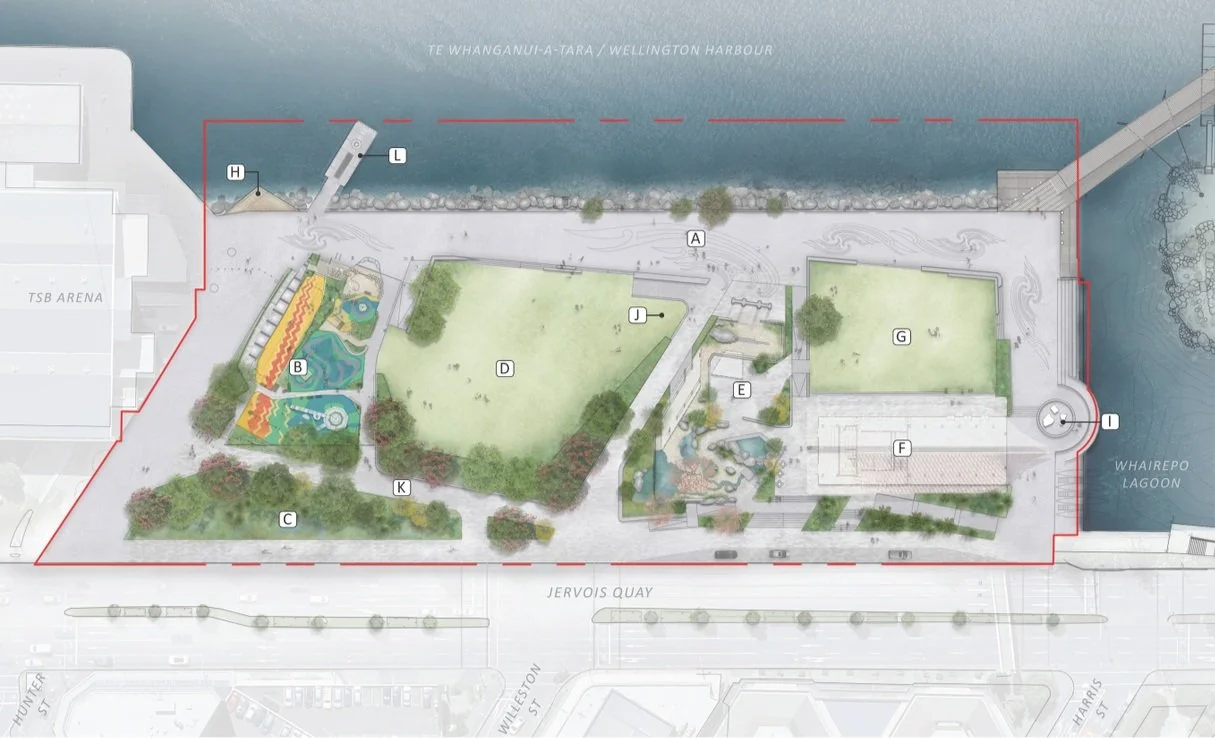Wellington City Council made the decision to demolish the earthquake prone underground carpark in the south-west corner of Frank Kitts Park. The Fale Malae Trust is proposing to build a Fale Malae which would, subject to landowner approval and resource consent, replace the car park structure with a smaller footprint and include multi-purpose spaces with Pasifika inspired architecture, as well as public facilities and a café. The design for a national Fale Malae at Frank Kitts Park has been drawn up, and the community was consulted with in April 2023 to ascertain their thoughts on the proposal.
Education Conversation | Kōrero Mātauranga ~ Ministry of Education
In 2018 the Ministry of Education implemented a visioning exercise to jumpstart a series of conversations aimed at building the world’s best education system. The Ministry of Education hosted a variety of events to ensure diverse representation of views were captured. Events included public workshops, seminars, and a comprehensive online survey designed to elicit responses from anyone with an interest in education.
Let's Get Wellington Moving ~ Wellington City Council, Greater Wellington Regional Council and NZ Transport Agency
Let’s Get Wellington Moving (LGWM) is a partnership between Wellington City Council, Greater Wellington Regional Council, and the NZ Transport Agency. It is working with the people of Wellington to develop a transport system that supports their aspirations for how the city looks, feels, and functions. The programme partners want to support Wellington’s growth while making it safer and easier for you to get around.
Spatial Plan (2020) and Draft District Plan (2021) ~ Wellington City Council
In the 30 years between now and 2050, Wellington expects to welcome 80,000 new residents. The Draft Spatial Plan was produced as a guide to a compact, resilient, vibrant, prosperous, inclusive, connected, and greener Wellington that accommodates this projected population growth. The Draft Spatial Plan informed the District Plan, which acts as a blueprint for the functioning and decision making of Wellington City Council (WCC).
In late 2020, the WCC sought feedback on the Draft Spatial Plan. 2,897 citizens submitted to the engagement. Wellington City Council solicited general feedback on the Plan, posed questions about a range of specific issues, such as intensification, character retention, and suburban rapid transit centres, and prompted submitters to discuss development options in clearly defined areas.
Mining recent engagements for insights: Informing Wellington's 2023 Long Term Plan ~ Wellington City Council
Wellington City Council existing public engagement results for insights re-interpreted to inform planning for the 2023 Long Term Plan. Understanding the value in the information collected over successive years and wanting to ensure the best use is made of their resources, they asked Global Research to reconsider existing data, and repurpose it to tell a story about what the community thinks and feels about priorities, challenges, and opportunities for the city.
Central Library Redevelopment ~ Wellington City Council (WCC)
The Wellington Central Library was closed to the public in March 2019 due to new guidelines for concrete buildings revealing a high level of potential failure in a significant earthquake.
A public engagement consultation ran between 27 July and 7 September 2020 to examine preferences for the Central Library redevelopment. The consultation process invited the public to comment on five options for a redevelopment of the Central Library, three with different levels of remediation, and two which proposed a new build.
Planning for Growth ~ Wellington City Council
Planning for Growth builds on the goals from Our City Tomorrow — Wellington’s Ten Year Plan — and includes a review of the Wellington Urban Growth Plan, as well as the District Plan — both of which impact and shape Wellington's urban environment.
In the next 30 years, Wellington is projected to become home to 50,000 to 80,000 more people. That will have a big impact on the city — not just on where people live, but how they live. Wellingtonians had their say via an online survey on the pros and cons of four growth scenarios proposed to accommodate anticipated population growth.







